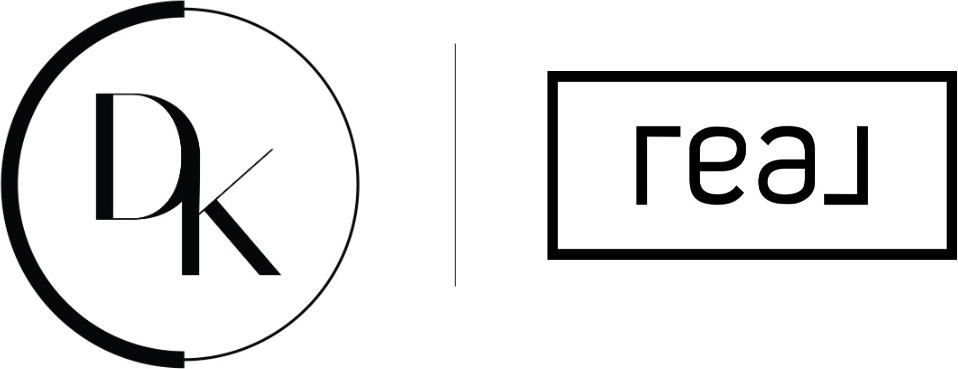Selling a home involves more than just finding the right buyer and agreeing on a price. As you prepare for the final steps of the sale, closing costs come into play, representing a range of expenses that must be settled before ownership transfers to the buyer. These fees can include everything from agent commissions to title insurance, all of which contribute to the total amount deducted from your sale proceeds. Whether you’re a first-time seller or experienced in the process, gaining a clear understanding of these costs can help you avoid surprises at the closing table, ensuring a smooth transaction.

Common Types of Closing Costs for Sellers
Several key expenses make up the closing costs when selling a home. One of the largest and most anticipated is the real estate agent commission, typically ranging from 5% to 6% of the home’s sale price. This fee is usually split between the seller’s agent and the buyer’s agent. Sellers should also expect to cover a portion of the title insurance, which protects the buyer from any future disputes regarding the property’s ownership. Title companies charge a one-time fee for this service, and it is often customary for the seller to pay for the buyer’s policy, depending on local practices.
Another significant cost is any outstanding property taxes. At closing, sellers are responsible for paying the prorated amount of property taxes for the year up until the sale. Additionally, any existing liens on the property, such as unpaid contractor fees or judgments, must be cleared before the sale can be finalized. Some sellers may also encounter costs related to HOA fees if their property is part of a homeowners association. The seller is typically responsible for any outstanding dues and sometimes a transfer fee for passing the property to the new owner.
In some cases, sellers might offer concessions to sweeten the deal for buyers, such as contributing toward their closing costs. This is particularly common in buyer-friendly markets. Finally, any inspection repairs or agreed-upon fixes that were negotiated after the home inspection can also add to the closing costs. Understanding these common types of closing expenses helps sellers prepare financially and avoid unexpected deductions from their final sale proceeds.
How to Calculate Closing Costs When Selling
Estimating closing costs when selling a home involves understanding the typical expenses and using a percentage of the sale price as a baseline. In general, sellers can expect to pay between 6% and 10% of the home’s final sale price toward closing costs. The largest portion of this is the real estate agent commission, which typically accounts for around 5% to 6%. Knowing this, sellers can take the sale price of the home and multiply it by the expected commission rate to get an initial estimate of this expense.
Beyond agent commissions, other common costs such as title insurance, transfer taxes, and property taxes vary by location. Title insurance usually ranges from 0.5% to 1% of the sale price, depending on local laws and the specific title company. In some states, sellers must also cover a portion of transfer taxes, which can either be a flat fee or a percentage of the sale price. Transfer tax rates vary widely, so checking with a local real estate professional or attorney is helpful to determine the exact amount.
Sellers can also calculate prorated property taxes by determining how much they owe based on the date of closing. For example, if the sale occurs midway through the year, the seller would be responsible for paying property taxes up to that point. Adding up these costs will give sellers a clearer picture of what they will owe at closing. It’s also important to budget for any additional costs, such as repairs or concessions, that may arise during negotiations. While the exact total will vary, calculating these fees early in the process helps sellers better prepare and ensures they can move forward with confidence.
Who Pays for Closing Costs in a Home Sale?
In a home sale, both the buyer and seller share the responsibility for closing costs, though their contributions differ based on local customs, market conditions, and the terms of the sale. For the seller, the most significant expense is typically the real estate agent commission, which usually falls entirely on their shoulders. As a standard practice, sellers pay both their agent and the buyer’s agent, a cost that can account for 5% to 6% of the final sale price. This is often the largest single closing cost sellers will face.
Title insurance is another key expense, but whether the seller or buyer covers this cost varies by region. In some areas, it’s common for the seller to pay for the buyer’s title insurance policy, while in others, the buyer takes on this responsibility. Additionally, transfer taxes, which are paid to local or state governments to transfer the property’s title, can also fall to the seller, depending on local laws. These fees are either a flat amount or a percentage of the sale price and are an unavoidable part of the transaction.
Buyers, on the other hand, are typically responsible for costs like loan origination fees, appraisal fees, and their own title insurance policies (if the seller isn’t covering it). However, in certain circumstances, sellers might agree to contribute to the buyer’s closing costs as part of the negotiation process. This is especially common in buyer’s markets, where competition among sellers is high, or when the buyer requests help due to financing constraints.
Understanding which closing costs fall to the seller versus the buyer is essential in preparing for the sale. By knowing what expenses to anticipate, sellers can better plan their financial strategy and avoid potential surprises when negotiating with buyers.
How to Reduce Closing Costs as a Seller
While closing costs are an inevitable part of selling a home, there are several strategies sellers can use to reduce their financial burden. One of the most effective ways to minimize these costs is by negotiating lower real estate agent commissions. While the standard rate is around 5% to 6%, some agents may be willing to accept a reduced commission, especially in a hot market where homes sell quickly. Sellers can also explore the option of using a discount brokerage service, which typically charges a lower flat fee or reduced percentage in exchange for fewer services.
Another way to reduce costs is by carefully reviewing the settlement statement provided by the escrow or title company. This document details all closing expenses, and occasionally, mistakes or unnecessary charges can be found. Sellers should ensure they aren’t being charged for items the buyer has agreed to cover, and dispute any fees that seem out of place. Being vigilant about this process can lead to meaningful savings.
Sellers can also save by limiting concessions to buyers. While offering to pay for part of the buyer’s closing costs can make a home more attractive, especially in a buyer’s market, it’s not always necessary. Avoiding this concession or keeping it to a minimum can preserve a significant portion of the seller’s profits.
Additionally, completing necessary repairs before listing the property can prevent buyers from negotiating costly fixes after the inspection. By addressing major issues in advance, sellers can avoid the need for price reductions or repair credits that cut into the bottom line. Finally, shopping around for competitive rates on services like title insurance or escrow fees can also reduce closing costs. In some areas, sellers have the flexibility to choose providers, and finding a lower rate can lead to substantial savings.
Taking these steps can help sellers keep more of their earnings and ensure they aren’t paying more than necessary when closing the deal.
Timing and Market Conditions Impact on Closing Costs
The timing of a sale and the current market conditions can significantly influence closing costs for sellers. In a seller’s market, where demand for homes exceeds supply, sellers hold more negotiating power and may be able to reduce or avoid certain closing expenses. For example, buyers are often more willing to cover a larger portion of their own closing costs, such as title insurance or transfer taxes, just to secure a property in a competitive environment. Sellers might also have fewer concessions, such as repair credits or contributions to the buyer’s fees, which can help preserve their profits.
Conversely, in a buyer’s market, where there are more homes for sale than buyers, sellers may find themselves covering additional costs to close the deal. To make their home more attractive, sellers might offer to pay a portion of the buyer’s closing costs, such as loan fees, or provide credits for repairs following an inspection. These concessions can help expedite a sale but also add to the seller’s closing expenses. Timing the sale for periods of higher demand, such as spring or summer, when more buyers are typically active, can reduce the need for such incentives and lead to a smoother transaction with fewer out-of-pocket costs.
Additionally, local market trends can play a role in how much sellers pay. For example, areas experiencing rapid growth might have higher transfer taxes or other municipal fees as governments adjust to increased real estate activity. Sellers in these areas may face steeper closing costs, while those in more stable or declining markets could see lower fees.
Strategically planning when to list a home, along with understanding local real estate trends, can significantly impact the closing costs a seller is likely to face. Aligning a sale with favorable market conditions can result in both a faster sale and reduced closing expenses.
The Role of Escrow in Closing Costs
Escrow plays a crucial role in the home-selling process, serving as a neutral third party that manages the funds, paperwork, and other key elements leading up to the closing. Both the buyer and seller deposit money and documents into escrow, which ensures that the transaction proceeds smoothly and securely. For sellers, the escrow process is integral to the final stages of the sale, and the associated fees contribute to the overall closing costs.
Escrow fees are typically split between the buyer and seller, though the exact division can vary by location and negotiations. These fees cover the services provided by the escrow company, which include handling funds, ensuring all conditions of the sale are met, and preparing necessary legal documents. Depending on the complexity of the transaction, escrow fees can range from a few hundred to several thousand dollars. Sellers should be aware of their portion of this cost and ensure it is factored into their closing expenses.
In addition to handling funds, the escrow company is responsible for disbursing payments to all parties involved once the sale is finalized. This includes paying off any existing mortgage, distributing agent commissions, and covering title insurance and other fees. Once all financial obligations are met, the remaining proceeds from the sale are released to the seller.
Escrow also ensures that any contingencies, such as inspection repairs or title issues, are addressed before closing. This step protects both the buyer and seller from potential legal or financial issues after the sale. Sellers can also work with their escrow agent to ensure all closing costs are clearly outlined in the final settlement statement, preventing unexpected charges.
By acting as an impartial intermediary, escrow provides a safeguard throughout the transaction, ensuring that all parties meet their obligations and that closing costs are properly accounted for.
Tax Implications of Closing Costs for Sellers
Closing costs not only affect the immediate proceeds from a home sale but can also have tax implications that sellers should carefully consider. Some of the expenses incurred during the closing process may be deductible, while others could affect capital gains tax calculations. Understanding how closing costs interact with taxes can help sellers maximize their financial outcome and avoid surprises when it’s time to file.
One of the most important tax considerations for home sellers is the potential for capital gains taxes. When selling a primary residence, sellers may be able to exclude up to $250,000 of the profit from taxation (or $500,000 for married couples filing jointly), provided they meet specific ownership and use requirements. However, any profit above this exclusion may be subject to capital gains tax, which is why it’s important to accurately calculate the net profit from the sale. Many of the closing costs incurred during the sale, such as real estate agent commissions, title insurance, and escrow fees, can be subtracted from the sale price when determining the taxable gain, effectively reducing the amount of profit subject to taxation.
Additionally, sellers may be able to deduct certain closing costs related to selling expenses. For example, advertising costs, legal fees, and other selling-related expenses may qualify as deductions on a seller’s income taxes. Home improvements made shortly before the sale, especially those needed to pass inspection or make the home more marketable, may also be added to the cost basis of the home, potentially lowering capital gains.
However, not all closing costs are deductible. Payments related to mortgage interest, for instance, generally cannot be deducted unless specific conditions apply. Consulting with a tax professional is highly recommended to understand the full scope of potential deductions and to ensure that sellers accurately report their closing costs and any resulting tax liabilities. By planning ahead, sellers can make the most of available deductions and reduce their tax burden following the sale.
Final Thoughts on Closing Costs
Understanding and preparing for closing costs is essential when selling your home, as these expenses can have a significant impact on your net proceeds. By knowing the types of fees involved, how they are calculated, and potential strategies to reduce them, you can approach the closing process with confidence and clarity. Whether you’re navigating agent commissions, negotiating repairs, or reviewing escrow fees, careful planning ensures a smoother transaction and helps you retain as much of your sale’s profits as possible.
When you’re ready to sell your home, having the right guidance can make all the difference. Reach out today to learn how to maximize your home’s value while keeping your closing costs in check. With expert advice and personalized support, you’ll be well-positioned for a successful sale.

